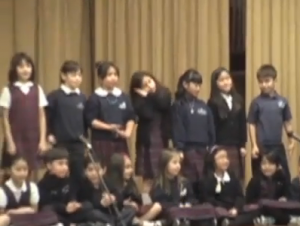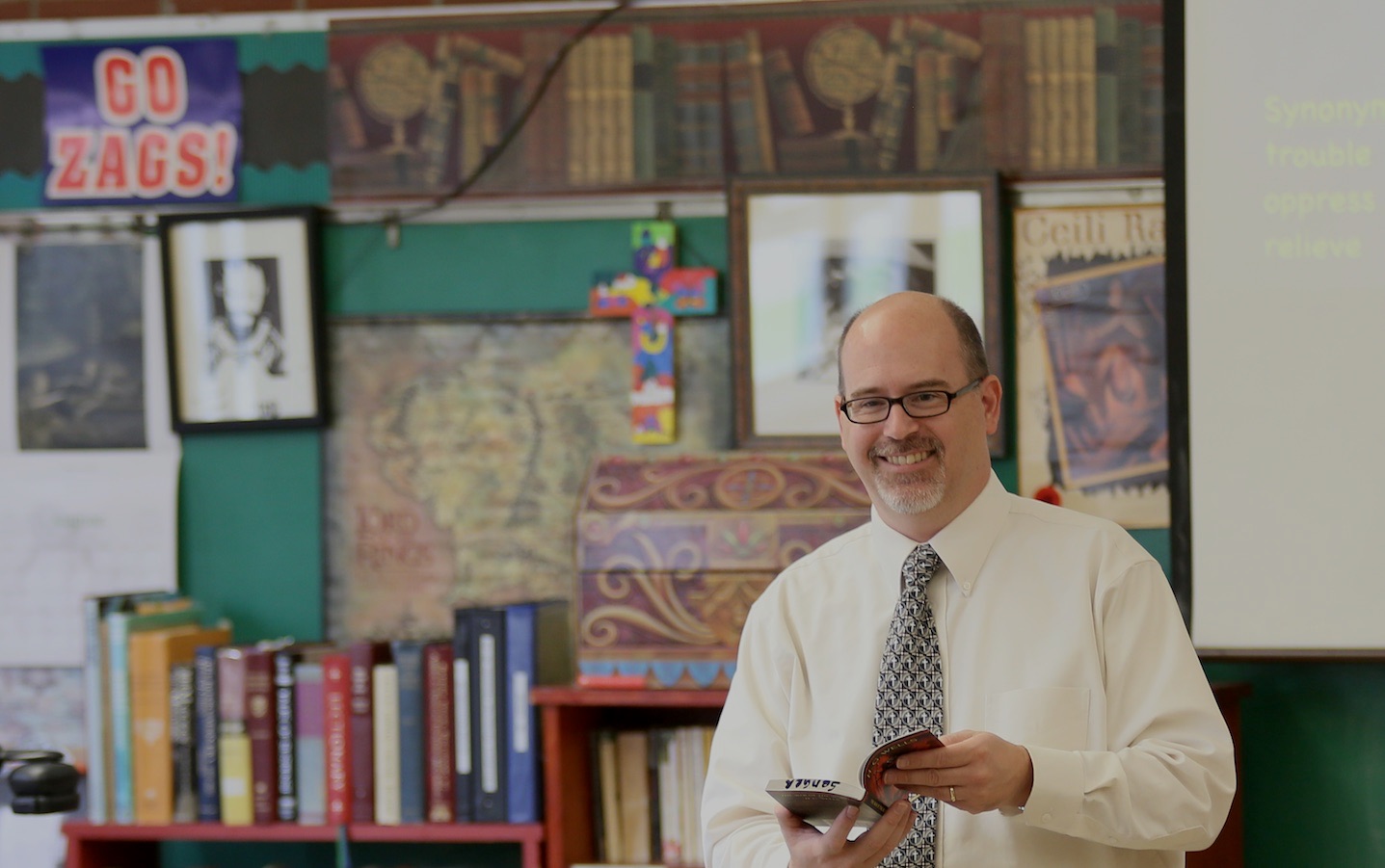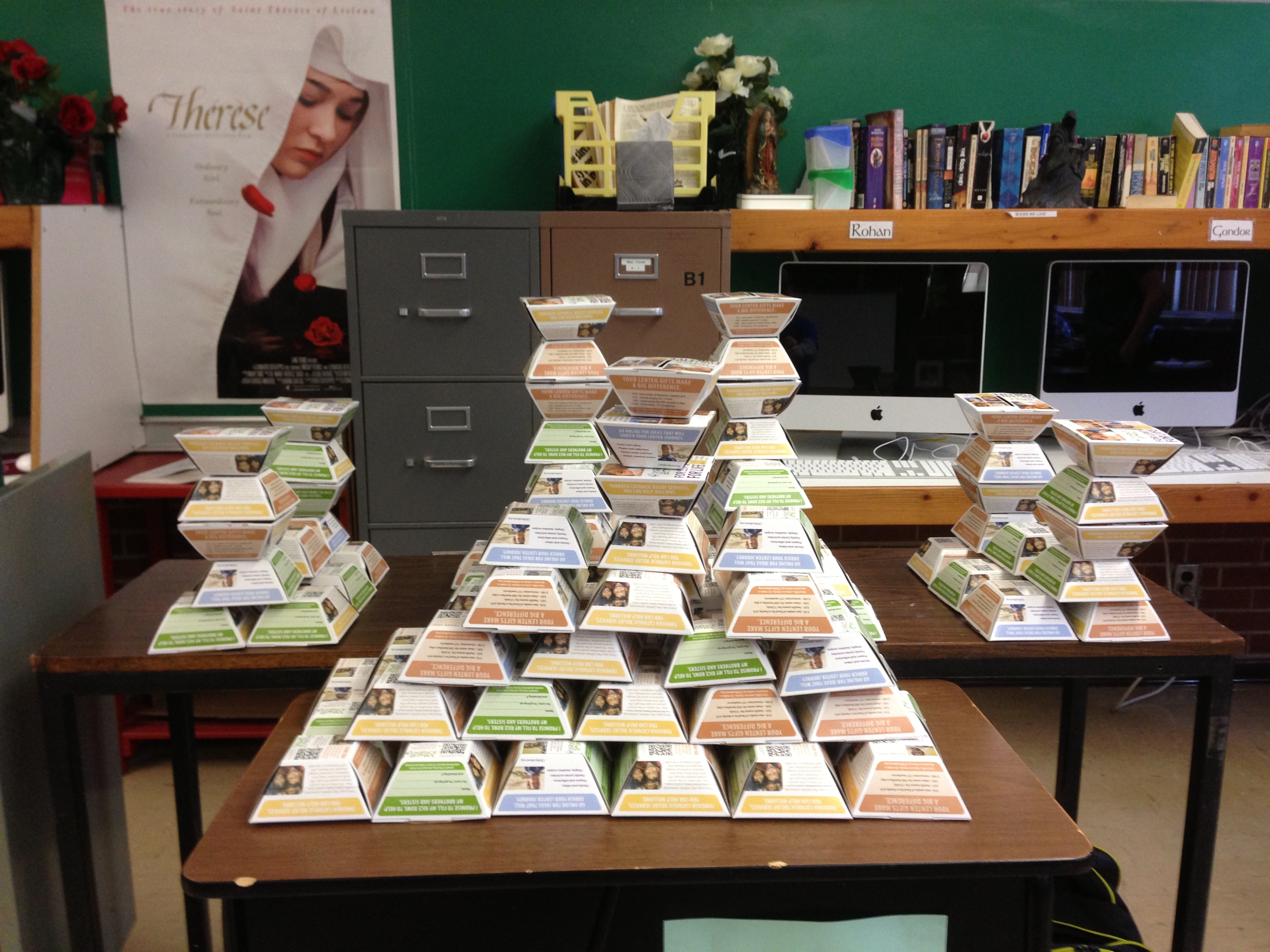101 Essential Resources for Catholic Educators

Happy Catholic Schools Week! To celebrate, I’ve put together a list of 101 resources that no Catholic educator should be without. From Twitter users to bloggers, from social networks to teaching tools, it’s all here in one convenient spot. Share the love, spread the news, and tell the world about Catholic Schools!
Catholic School Organizations and Resources:
- The National Catholic Education Association (NCEA)
- Catholic Education: A Journal of Inquiry and Practice
- Today’s Catholic Teacher
- Catholic Education Resources Wiki
- Resources for Catholic Educators
- Edocere.org
- CSK12 – Catholic Schools Virtual
- Catholic Coalition for Special Education
Social Networks and Catholic School Connections:
- The Catholic School Chronicle List of Blogs by Catholic Teachers, Principals, and Catechists
- ACE Advocates
- I Love Catholic Schools – Facebook
- Teaching Catholic Kids from OSV – Facebook
- NCEA Social Media Mashup
- Digital Catechesis Global Network on Ning
- Catholic School Connect
- The Religion Teacher
- Engaging Faith
- Catholic Fiction: News, Views, and Reviews
- Virtual Tour of St. Peter’s Basilica
- For Your Vocation
- Why Go to Mass?
- How to Write General Intercessions
- Prayers for Teachers, Students, Schools, and Classrooms
- Wingclips.com
- Everything the Church Teaches in Five Minutes
- 25 Kindle Books for Catholic Teachers
- Teen Saints in Past Times
Catholic News, Podcasts, and Multimedia:
- Catholic News Service
- Catechetical Leader Podcast
- Sunday Sunday Sunday from Lifeteen
- Catholic Movie Reviews from Lifteen
- Catholic Newsbreak from CatholicTV
- Redemptorist Television
- Whispers in the Loggia
Members of the University Consortium for Catholic Education:
- The Alliance for Catholic Education (ACE) at University of Notre Dame
- The Alliance for Catholic Education at St. John’s University
- Magis Catholic Teacher Corps at Creighton University
- The Educational Partners in Catholic Schools (EPICS) Program at Seton Hall University
- The Gulf Region Academy for Catholic Educators (GRACE) at University of St. Thomas
- The Lalanne Program at University of Dayton
- The Lasallian Association of New Catholic Educators (LANCE) Program at Christian Brothers University
- The Lutheran Education Alliance with Parochial Schools (LEAPS) Program at Valparaiso University
- The Loyola University Chicago Opportunities in Catholic Education (LU-CHOICE) Program
- operation TEACH from Notre Dame of Maryland University
- The Pacific Alliance for Catholic Education (PACE) at the University of Portland
- The Providence Alliance for Catholic Teachers (PACT) Program at Providence College
- Partners in Los Angeles Catholic Education (PLACE) Program at Loyola Marymount University
- Remick Fellowship at St. Mary’s University of Minnesota
- Urban Catholic Teacher Corps (UCTC) at Boston College
A Sample of Some of the Best Blogs in Catholic Education: (click here for a comprehensive list)
- Barb in Nebraska on Posterous
- Catholic Educator
- Catholic Teacher Musings
- Notes from McTeach
- Soul of a Nation
- Work with Hope
A Small Selection of Catholic Educators, Organizations, and Catechists on Twitter:
- Catholic School Chronicle
- Nick Senger
- Ricky Austin
- Michael Boyle
- Nancy Caramanico
- Marc Cardaronella
- Colette Cassinelli
- Caroline Cerveny, SSJ-TOSF
- Andrea Cisneros
- Karla Cross
- Jared Dees
- Greg Dhuyvetter
- Barb Gilman (aka BarbinNebraska)
- Meghann Kirzeder
- MJ Adams Kocovski
- Chuck Lamphier
- Karen McMillan
- Ann Oro
- Dorian Speed
- Mike St. Pierre
- Jonathan Sullivan
- ACE Advocates
- Catholic Relief Services News
- Catholic Teacher Resources
- Chicago ACE Fellowship
- Chicago Catholic Schools
- Cristo Rey Network
- NCEA Secondary
- NCEATalk
- National Conference for Catechetical Leadership
- USCCB
- Vatican News
- Washington DC Catholic Schools
Catholic School Resources from the Magisterium:
Documents from the Congregation for Catholic Education and the USCCB:
- Educating Together in Catholic Schools: A Shared Mission between Consecrated Persons and the Lay Faithful
- The Catholic School on the Threshold of the New Millenium
- The Religious Dimension of Education in a Catholic School
- Lay Catholics in Schools: Witnesses to Faith
- The Catholic School
- Renewing Our Commitment to Catholic Elementary and Secondary Schools in the Third Millenium (pdf)
Now it’s your turn. What have I left off the list? What are your essential resources for Catholic teachers? Leave your suggestions in the comment area.
Catholic School Teacher Begins Career with Miracle
 One of the great pleasures of teaching in Catholic schools is the inspiration I receive daily from my colleagues. It’s a privilege to work with such dedicated, faith-filled people who tirelessly strive to build up the Kingdom of God. One of those witnesses to faith is my teaching partner, Kolleen Murray. Kolleen and I have worked together for over a decade teaching eighth graders at All Saints Catholic School in Spokane, Washington. This year Kolleen received the NCEA’s Distinguished Teacher Award, and was featured in an article on Catholic Schools Week by Our Sunday Visitor:
One of the great pleasures of teaching in Catholic schools is the inspiration I receive daily from my colleagues. It’s a privilege to work with such dedicated, faith-filled people who tirelessly strive to build up the Kingdom of God. One of those witnesses to faith is my teaching partner, Kolleen Murray. Kolleen and I have worked together for over a decade teaching eighth graders at All Saints Catholic School in Spokane, Washington. This year Kolleen received the NCEA’s Distinguished Teacher Award, and was featured in an article on Catholic Schools Week by Our Sunday Visitor:
Murray, 50, is one of 12 current National Catholic Educators of the Year, recognition given by the National Catholic Education Association, and she represents five Western states. She has been a teacher for 12 years and currently teaches an eighth-grade class at All Saints Catholic High School in Spokane, Wash.
And it began, she said, with somewhat of a miracle.
Murray was hired in May 2000, and in June, she wrecked on a bike, sustaining a traumatic brain injury that landed her in the hospital for two weeks and in rehabilitation for months. During that time, teachers brought food and cleaned her house. Kathy Hicks, her principal, came to walk with her arm in arm.
“I told her that she needed to hire someone else,” Murray said. “But she told me that she would teach my classes, and her colleagues would teach my classes, until I got better. That is the miracle of this ministry, that Kathy would not hire someone else. I came to this ministry with a very grateful heart. Can you imagine so much support and so much love? It was beautiful.”
Murray could teach for only two hours each morning when classes resumed, and by October, her strength returned.
“The students knew from Day One that I had a brain injury, and that it would be we as a community, we as the body of Christ, that would facilitate the learning,” she said.
Read more about Kolleen and Catholic schools, including an interview with our superintendent Duane Schafer, at Our Sunday Visitor.
A Round-Up of Catholic Schools Week Videos
 Catholic Schools Week 2011 is over, but the celebration continues thanks to many schools who posted videos of their activities. From flash mobs to bishops’ homilies, the following videos show how schools around the country celebrated this national event.
Catholic Schools Week 2011 is over, but the celebration continues thanks to many schools who posted videos of their activities. From flash mobs to bishops’ homilies, the following videos show how schools around the country celebrated this national event.
Faculty-staff Flash Mob at Totino-Grace High School:
Homily by Bishop Michael Burbidge of Raleigh:
St. Joachim Catholic School Celebrates Catholic Schools Week:
Reflection by Resurrection School Principal Linda Knox:
An Appreciation Video to the Faculty and Staff of DePaul Catholic:
Teach Them Something That Lasts
Note: The following reflection was written for Catholic Schools Week 2011 as part of a series for ACE Advocates for Catholic Schools.
 When I taught Amy she was a bright, athletic, beaming eighth grader. She loved her older sister, her younger brother, and playing soccer. A short two years later, her body was ravaged by leukemia, and after a long and valiant battle, she passed away. Attending her funeral was one of the most difficult things I’ve ever done. And yet, though it was many years ago, I still remember the theme of the homily: Amy’s life is changed, not ended.
When I taught Amy she was a bright, athletic, beaming eighth grader. She loved her older sister, her younger brother, and playing soccer. A short two years later, her body was ravaged by leukemia, and after a long and valiant battle, she passed away. Attending her funeral was one of the most difficult things I’ve ever done. And yet, though it was many years ago, I still remember the theme of the homily: Amy’s life is changed, not ended.
I sometimes imagine Amy looking down from heaven and saying to me, “These students you teach will not be here forever. Teach them something that lasts.”
And that, indeed, is the mission of Catholic schools: to teach something that lasts. Not for a decade. Not for a generation. But forever. As a guest speaker once told our faculty, “Our calling is to get students into Heaven, not Harvard.”
Not that Catholic schools don’t care about providing a rigorous education. Any of numerous studies will tell you that Catholic schools provide an outstanding academic foundation–high graduation rates and top scores on standardized tests. However, what Catholic schools uniquely offer our children is the one thing that lasts: the opportunity to develop in their relationship with Jesus Christ.
In a culture that increasingly marginalizes religion, Catholic schools keep faith at the forefront. Each day students witness the lived faith of a believing community and learn how Christ permeates every aspect of life. From learning about Catholic contributions in science to exploring religious themes in literature, from daily school prayer to weekly school liturgies, Catholic schools offer students an ongoing invitation to recognize God in their lives.
Catholic schools give students the x-ray glasses they need to see through the false promises of our culture. Catholic schools give students the hearing aids they need to listen the voice of the Holy Spirit in their own lives. Catholic schools give students the inner compass they need to find their way to their true home.
Life is beautiful, but all too short. I advocate for Catholic schools because Catholic schools offer students an education that lasts a lifetime…and beyond.
101 Reasons to Send Your Child to a Catholic School

With Catholic Schools Week 2011 nearly upon us, Catholic schools all over the country are about to celebrate the gift of Catholic education. My own involvement in Catholic education has been a blessing I could never repay. From first grade through high school, from undergraduate to graduate school, I spent nineteen years as a student in Catholic schools. Currently I am in the middle of my twenty-first year as a teacher in Catholic schools. That means I have spent about 90 percent of my life in Catholic classrooms. And I’m not sure which portion of that time–as a student or as a teacher–has taught me more.
Regardless, I’m not the only one to have benefited from the time I’ve spent within the halls of the Church’s most effective means of catechesis. As a tribute to all those whose efforts make Catholic schools possible, here is my list of 101 reasons to send a child to a Catholic school. Though there are many more reasons I could mention, the focus of this list is mostly on things that can only be found in a Catholic school. They are not in any particular order.
Why should you send your children to a Catholic school? So they can experience:
- Prayer each morning before the school day begins
- Prayer before eating lunch
- Prayer at the end of each school day
- A Christmas concert rather than a “Winter Concert”
- Weekly Mass with their closest friends
- Learning about saints and other heroes of faith
- Praying the rosary
- Participating in the Stations of the Cross
- Spiritual retreats
- Celebrating the true meaning of Christmas
- Reading scripture regularly
- Praying with the entire school when disasters or tragedies occur
- Celebrating All Saints Day instead of Halloween
- No school on Easter Monday!
- Learning responsibility for their own education by fund raising
- Learning the connection between faith and reason
- Being able to talk to a teacher about religion
- Sharing faith journeys with each other
- Seeing priests on a regular basis
- Celebrating Mary in May
- Halls decorated with a manger during Advent and Christmas
- Talking with friends about what to give up for Lent
- Congratulating second graders on receiving First Communion
- Helping Catholic Charities with service projects
- Hearing Jesus’ name regularly, and not as a swear word
- Getting pets blessed on the feast of St. Francis
- Getting throats blessed on the feast of St. Blase
- Celebrating the Immaculate Conception
- Seeing teachers at Sunday Mass
- Connecting service with Catholic social teaching
- Hearing a consistent pro-life message
- Easy shopping for school clothes
- Being able to discuss the religious symbolism in works like The Chronicles of Narnia and The Lord of the Rings
- St. Nicholas parties
- Epiphany parties
- Seeing the same friends at church that they see at school
- Learning about liturgical colors and seasons
- Discipline based on gospel values
- Crucifixes on the walls
- Statues of Mary
- Religious-themed bulletin boards
- Nearness to the Blessed Sacrament
- The chance to lector at school Masses
- The chance to serve at the altar at school Masses
- Making rosaries during Art
- Learning that their bodies are temples of the Holy Spirit
- Hearing “Make room for Jesus!” at school dances
- Seeing teachers wear religious-themed jewelry or clothing to school
- Hearing a teacher witness to his or her faith
- Celebrating the resurrection of Jesus at Easter
- Religious art on the walls
- A curriculum designed to help students grow in spirituality
- Learning about sacred music in Choir class
- The freedom to talk about any religion, rather than no religion
- An atmosphere that cares more about students getting in to heaven than into Harvard
- Spending seven hours a day in a faith community
- Learning about all vocation options including marriage, ordained and religious life
- Getting to listen to the Pope talk about school
- Discussing the religious and ethical implications of stem cell research, abortion, euthanasia, and other life issues
- Dressing up as their favorite saint for All Saints Day
- Constant support and encouragement in their spiritual life
- Exposure to classic spiritual works by St. Augustine, St. Thomas Aquinas, St. Francis de Sales, St. Teresa of Avila, St. Catherine of Siena, Hildegard of Bingen, etc.
- Ash Wednesday Mass
- Daily exposure to the Bible
- Learning about the Catholic contribution to science through great Catholic scientists including Pasteur, Mendel, Lemaitre, Bacon, and Albertus Magnus
- A mission to educate the whole child: spiritually, as well as academically, morally, socially and physically.
- An outstanding academic program that helps students become their best selves
- The freedom to talk explicitly about the creator who has endowed us with the inalienable rights to life, liberty and the pursuit of happiness
- Learning about the redemptive value of suffering
- Teachers who explicitly model their instruction after the great teacher, Jesus Christ
- Celebrating St. Joseph the Worker
- A strong intellectual history whose tradition of academic excellence is unmatched by any other organization that has ever been
- The development of a Catholic world view
- A natural integration with all aspects of family life, rather than a compartmentalized existence
- Moral development based on gospel values
- An antidote for the surrounding culture’s materialistic, image-centric distortions of reality
- Discovering what it means to live a “Christ-centered” way of life
- Learning the meaning of life in its fullness
- Coming to understand that at the heart of every subject is Jesus, “the way, the truth and the life”
- Learning to recognize the voice of God in all creation
- Learning to be a living witness to God’s love
- Being constantly reminded that God loves them
- Parent Nights that begin with prayer
- Hearing prayers at 8th grade graduation
- Mass to begin the year
- Mass to end the year
- Field trips to convents and seminaries
- Learning about the connection between faith and service to the poor and underprivileged
- Field trips to nursing homes to sing Christmas carols
- Classrooms visits by priests, deacons and women religious
- Learning different ways to pray
- Awards assemblies that begin with prayer
- Sports leagues that begin each game with prayer
- Student council meetings that begin with prayer
- Becoming comfortable talking about God and faith with peers
- Spending more hours a day in a room with a crucifix than in a room with a television
- Learning the history of the Catholic Church
- Acquiring the skills to spread the good news to all corners of the world
- Opportunities for Eucharistic Adoration
- Learning about the only thing that really matters: a personal relationship with Jesus Christ, lived out in a community of faith guided by the Holy Spirit, in order to more deeply and devoutly follow will of the Father
- Catholic Schools Week!


